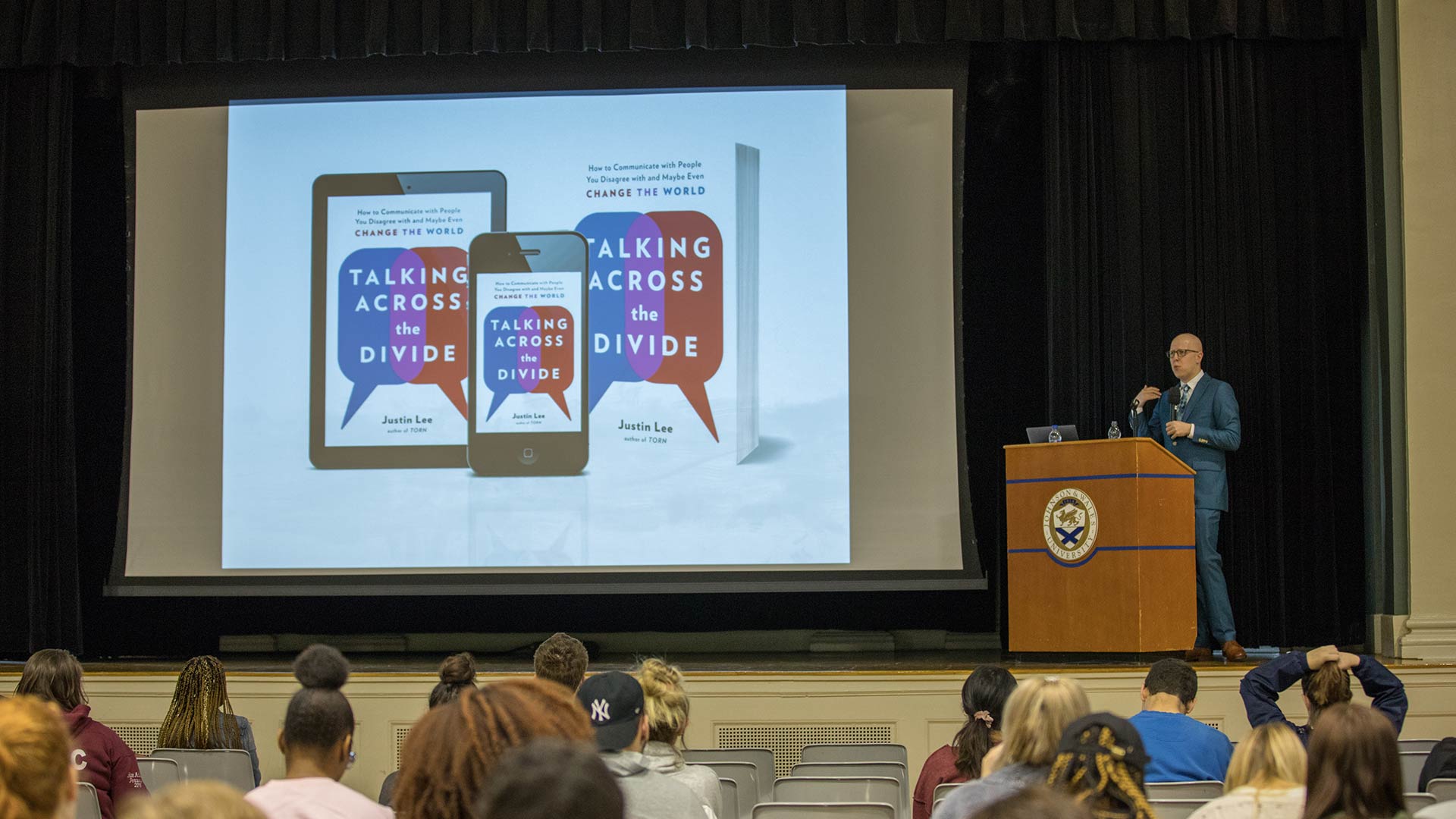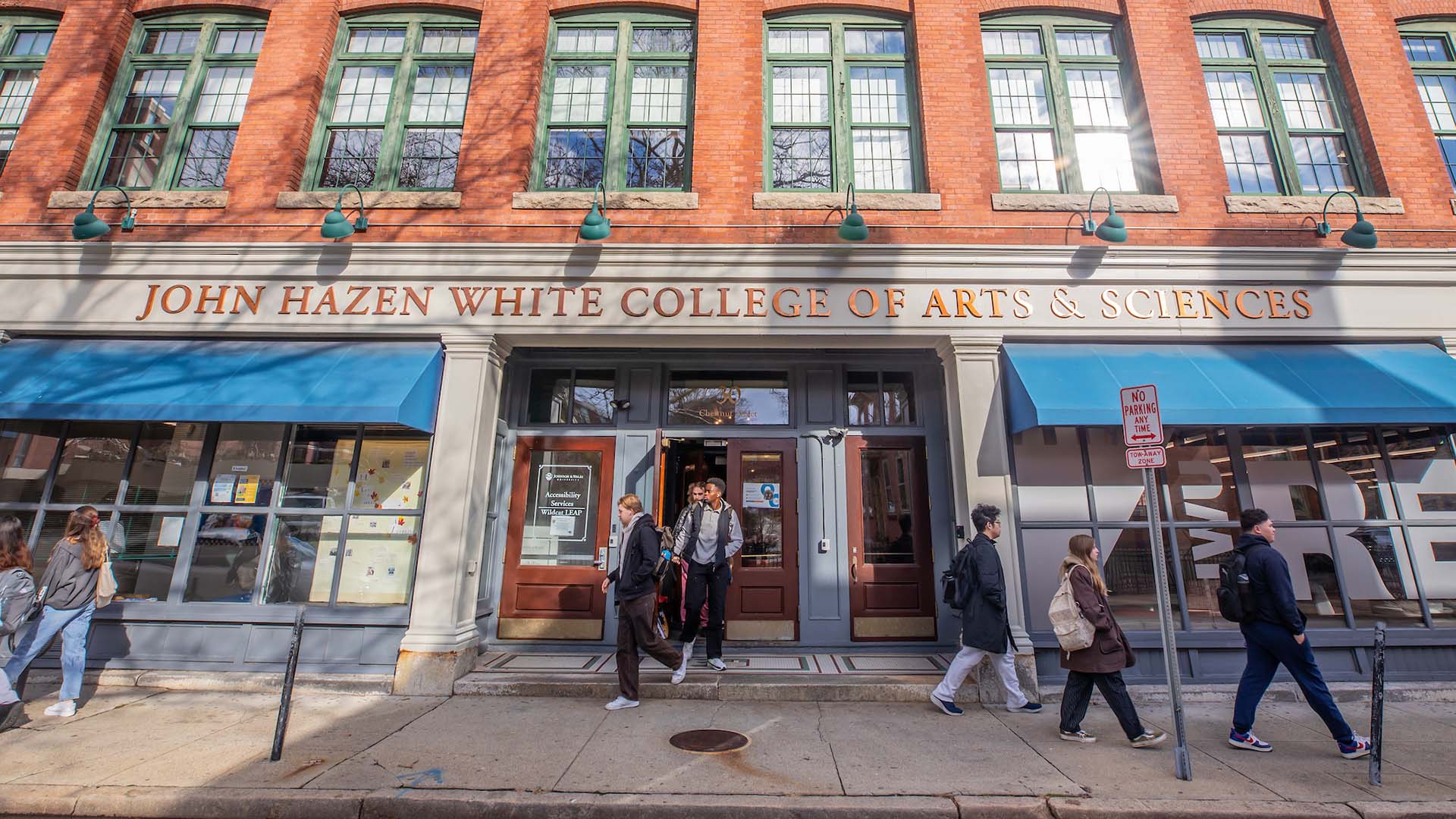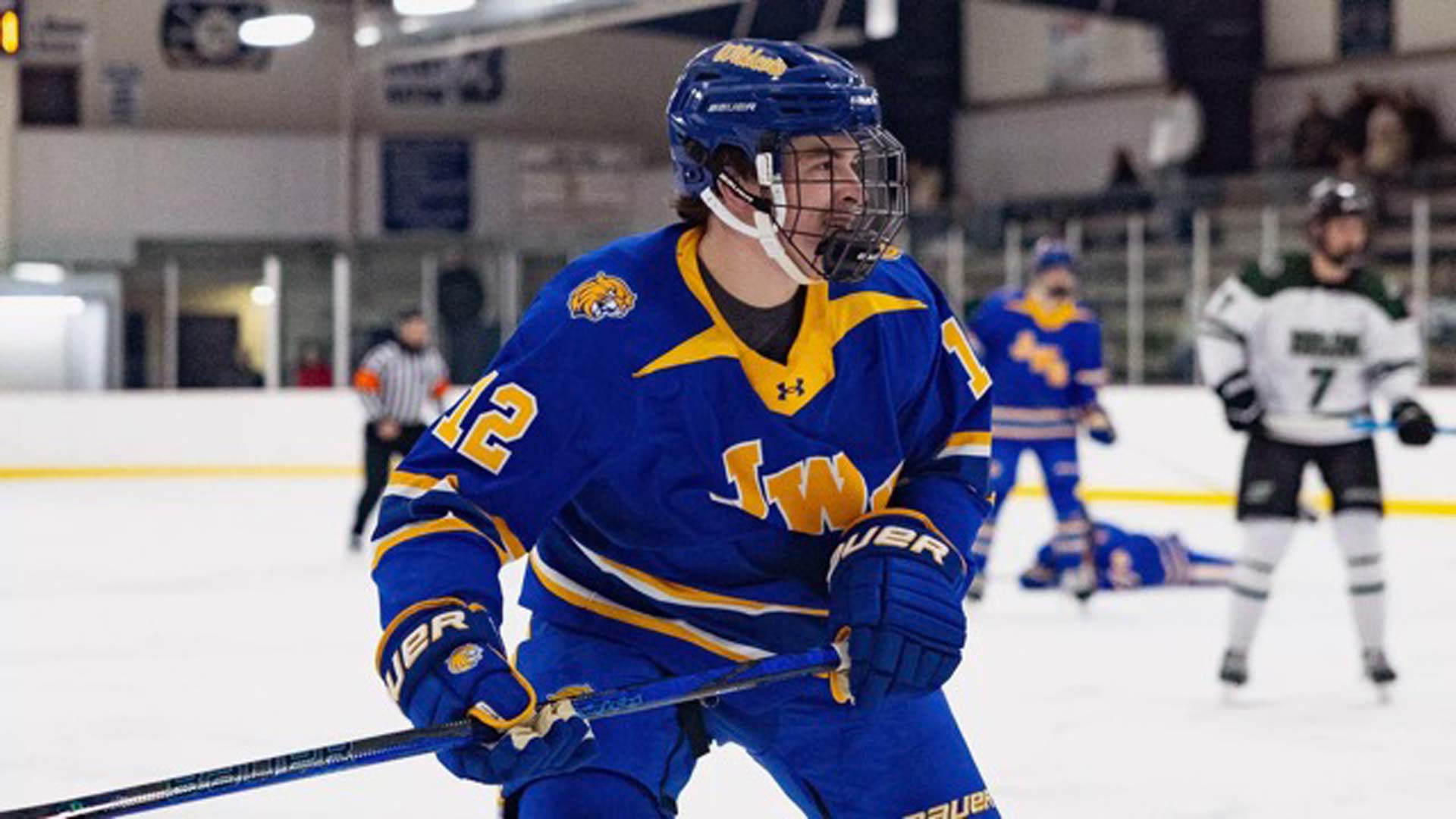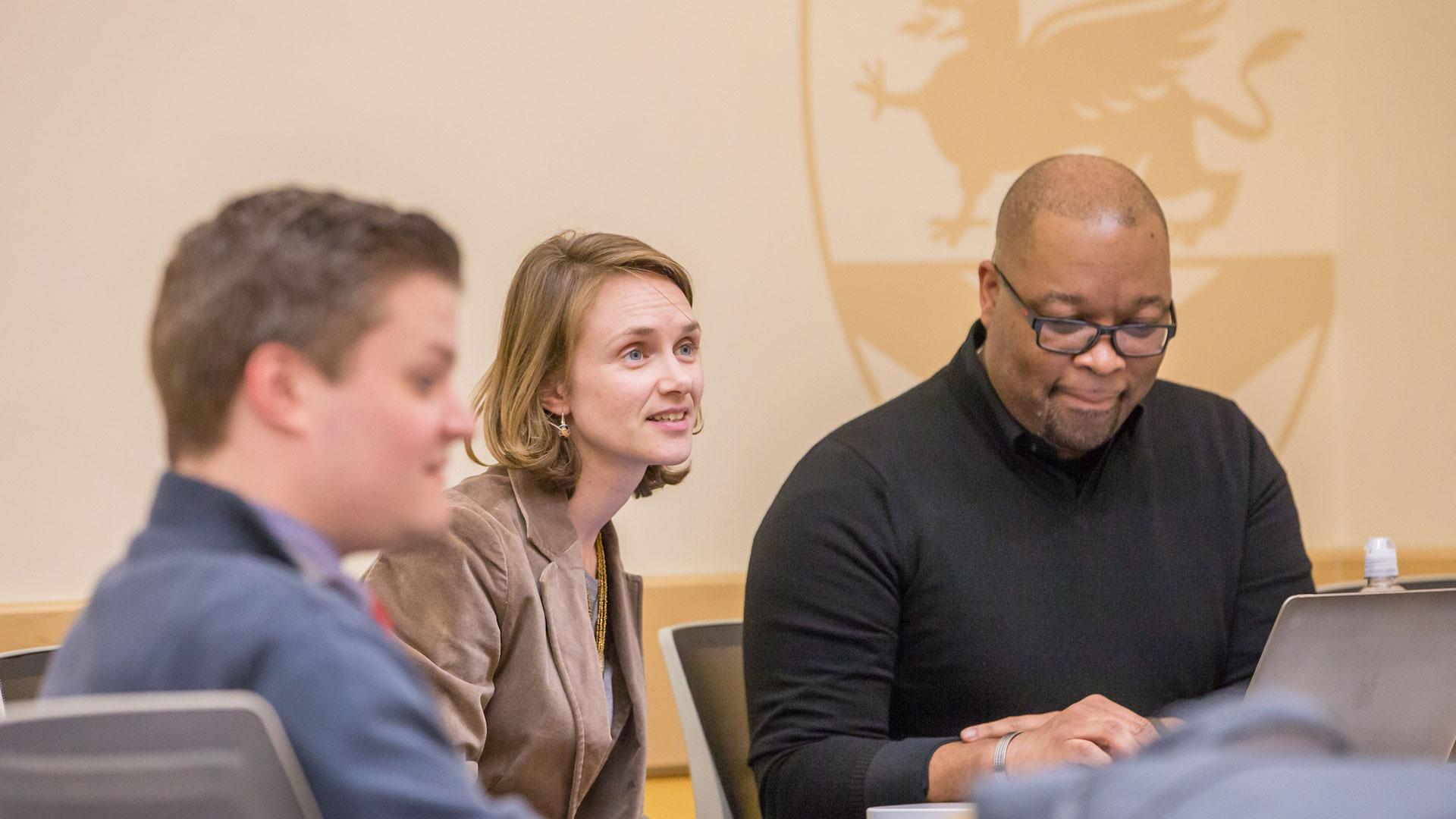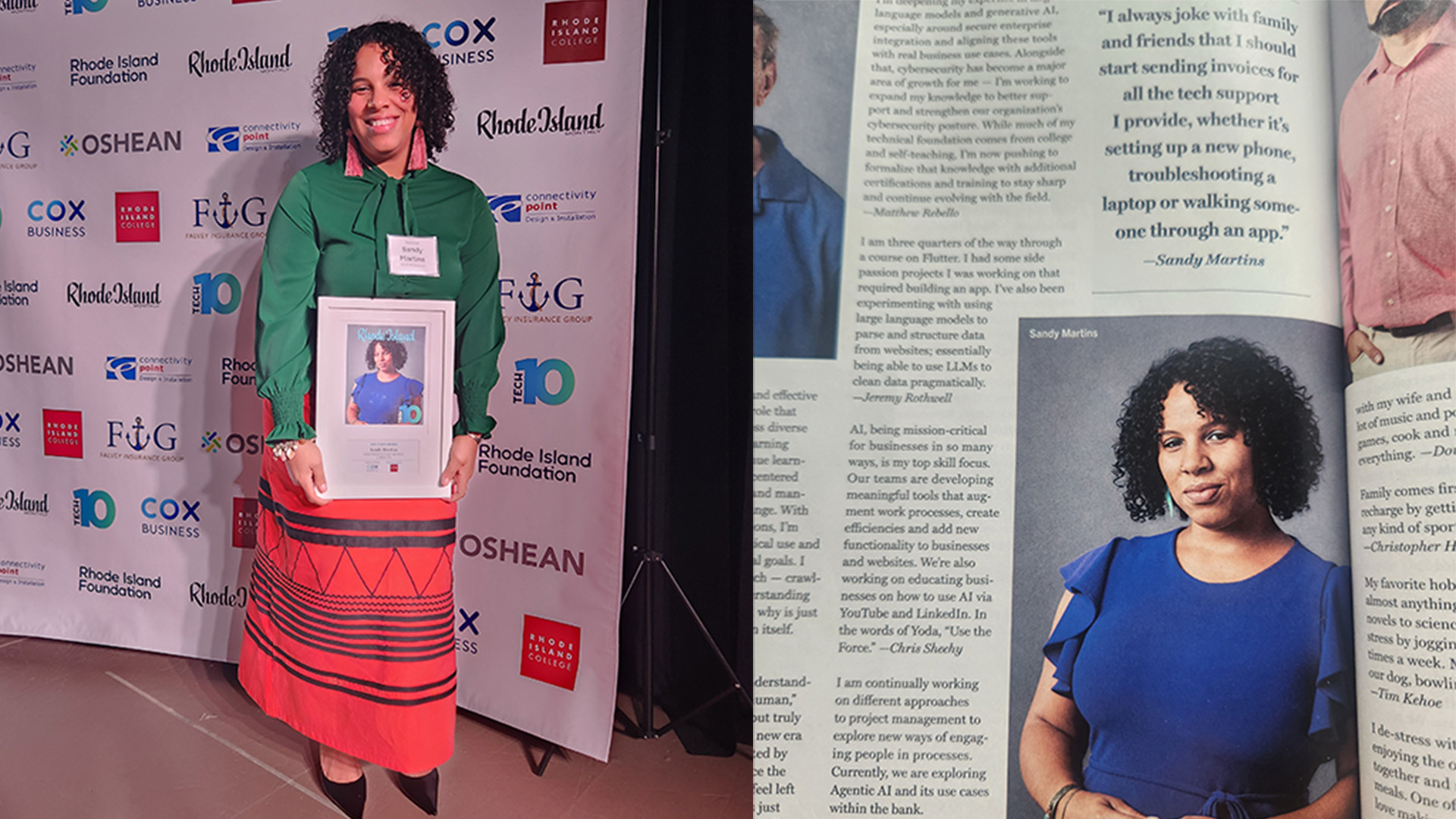The Power of Communication in Conflict
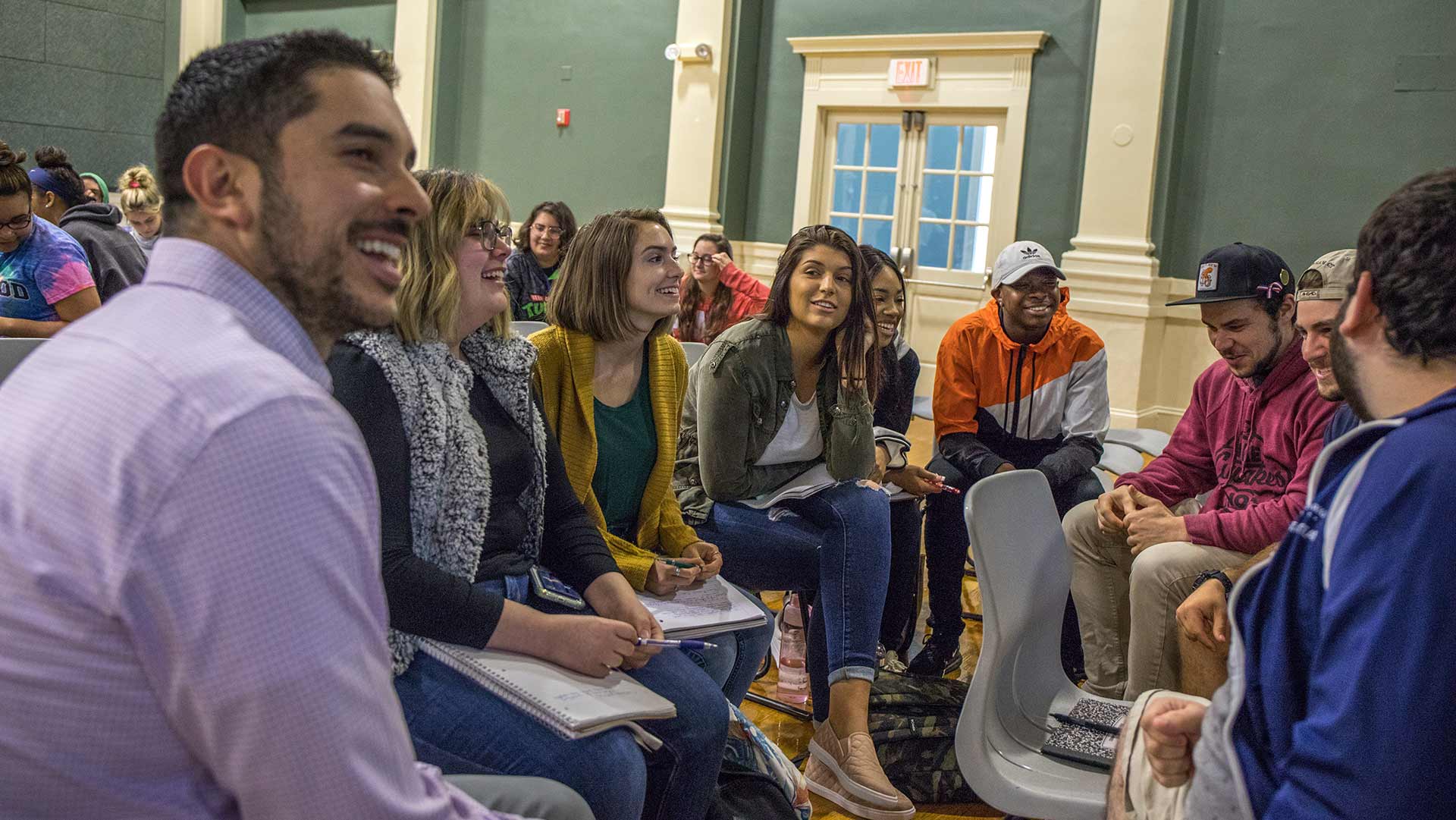
Today’s world is full of conflict and demands for opinions. Whether it's 24-hour news cycles or pressures to pick a political side, almost no topic, however benign, seems to be off-limits for debate.
Enter Justin Lee, author, vlogger and LGBTQ Christian advocate who aims to fight polarization and increase understanding. He addressed a packed Pepsi Forum as part of JWU Providence's bi-annual Media & Politics Café series. His book, “Talking Across the Divide”, is a step-by-step guide for having difficult conversations with people on a variety of issues & whether it's politics, faith, or even a family squabble.
“As our world is getting increasingly polarized, I think that success in the future for folks is going to depend largely on their ability to work and communicate with people who don't feel the same way they do,” Lee says. “I think that's a skill that is going to be very much in demand in every kind of career and in any walk of life — to be able to have those difficult conversations.”

Although Lee has spoken to universities, churches, private events and conferences, he did not set out to become a “speaker.” He grew up in a conservative, Southern Baptist home, and once he realized he was gay he spent a lot of time wrestling with what are often conflicting ideologies. “I realized that a lot of my Christian friends and family didn't understand me, and LGBTQ people didn't understand me,” he says. “And I wanted to have those conversations.” And so, he founded and ran an LGBTQ Christian organization for 16 years, focusing on changing anti-LGBTQ attitudes in the church and providing support to those who were not supported. “In the process, I found myself sometimes being asked to speak to very conservative Christian groups about gay people, and then sometimes very progressive LGBTQ groups about people of faith,” he says.
"That's a skill that is going to be very much in demand in every kind of career...to be able to have those difficult conversations."
So how does an LGBTQ activist become an expert in communication? Through his work with faith and sexuality conflicts, he began to notice a pattern. “I started noticing a lot of things about how people misunderstood each other, and strategies that worked or didn't work,” he says. “And I thought, I could write a book just about this. How did you do this in general?”
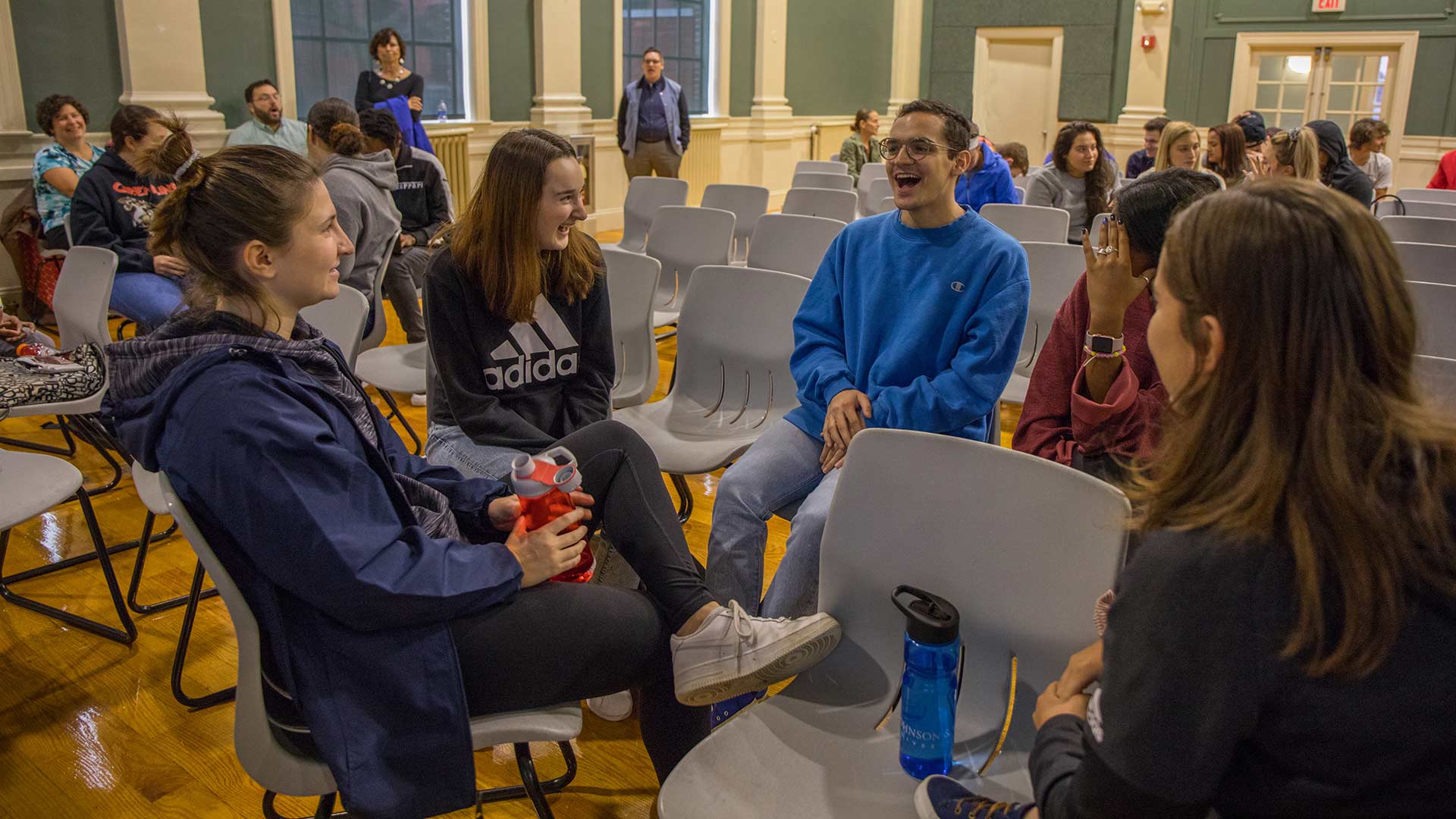
Lee then broke down the steps to effective communication and cautioned that debate won’t change someone’s mind. Instead, he explained, seek to understand the person you are in conflict with. Listen to their stories, and then, in turn, share yours. “If you understand their story, then you have something you can use to help build a bridge.” Unlike arguments, he says, stories are powerful. Personal experiences and stories have the power to change minds.
"If you understand their story, then you have something you can use to help build a bridge."
After his presentation, students broke up into groups to discuss several scenarios in which they could practice their newly-acquired communication skills. Each scenario contained several viewpoints that the students could delve into and decide how best to bridge the gap between each side.
“Justin was the perfect speaker to provide the tools our students need to have difficult conversations with their roommates, friends, family, professors, etc.,” says Kristin Pendergast, assistant director of community standards and conduct. “With an important election almost a year away, I feel confident that students will be able to have these important conversations in our polarized world in a civil and effective way.”
